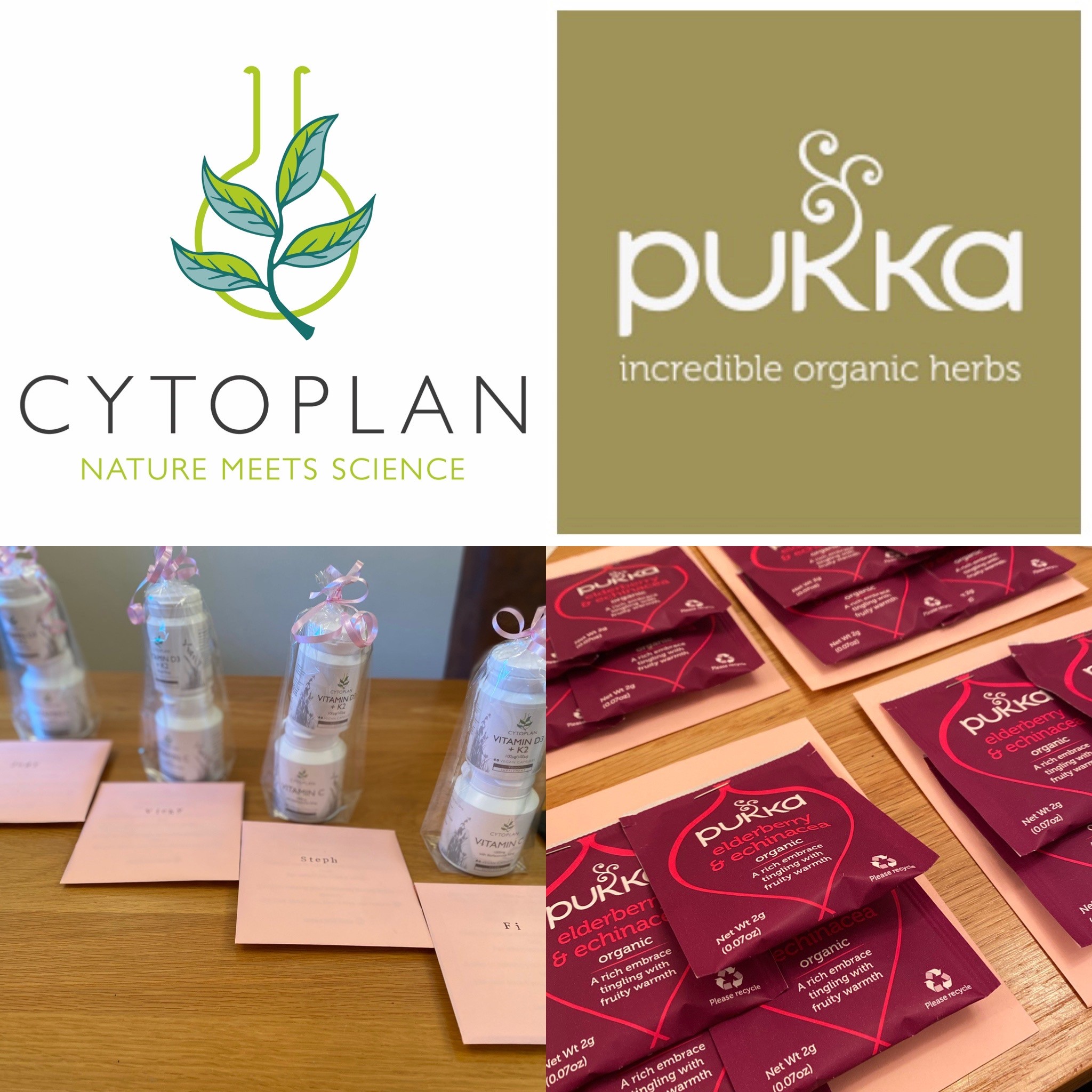As we approach the colder season, it is important to keep our vitamin levels topped up and help increase our immunity against the upcoming winter bugs.
Lets start with vitamin C…
This vitamin is also known as Ascorbic acid, helping to protect cells and keep them healthy. It supports immunity, helps care for your teeth and helps absorb iron if you are vegetarian or vegan. 1
Vitamin C is a water soluble vitamin which means our bodies can’t store it.
Eating a balanced diet should provide you with the amount you need every day. It is recommended that adults between 19 and 64 should consume 40mg a day. However, this dosage varies based on an individuals lifestyle, weight, general health, time of year etc.
In 2017, researchers at the University of Helsinkini found that taking more vitamin C during the winter months shortens colds and other winter bugs. 2
Good sources of vitamin C are:
- Citrus fruit, such as oranges and orange juice
- Peppers
- Strawberries
- Blackcurrants
- Broccoli
- Brussels sprouts
- Potatoes
For example one medium sized kiwi fruit is around 47mg vitamin C.
Signs you haven’t consumed enough vitamin C include:
- Tiredness
- Irritability
- Bruising easily
- Dry hair and skin
- Sore or bleeding gums
Remember to be careful with taking too much, side effects can be stomach cramps, diarrhea and flatulence!
Moving onto Vitamin D…
The main focus of vitamin D aka ‘The Sunshine Vitamin’, used to be on strong and healthy bones but it is also an important factor in making sure your muscles, heart, lungs and brain work well and that your body can fight infection. Low vitamin D levels can mean that you’re more prone to catching the germs and infections that are prevalent.3
Why aren’t we getting enough vitamin D?
Around 50 to 60 per cent of the British population is insufficient in vitamin D. Increasing sun safety awareness – more of us are using sun block – long winters and poor summer sunshine all mean we are not producing enough of the vitamin.
From October to March in the UK, sunlight does not reach the earth at the correct angle so, in turn, not enough UVB rays reach us in order to produce vitamin D.
Some groups are also more vulnerable. The elderly or housebound, dark skinned, pregnant or breast-feeding women, those who cover their skin and those with a poor diet could be deficient in vitamin D.4
How do we get enough vitamin D?
The NHS states that “Children from the age of 1 year and adults need 10 micrograms of vitamin D a day. This includes pregnant and breastfeeding women, and people at risk of vitamin D deficiency. A microgram is 1,000 times smaller than a milligram (mg). Sometimes the amount of vitamin D is expressed as International Units (IU). 1 microgram of vitamin D is equal to 40 IU. So 10 micrograms of vitamin D is equal to 400 IU.”5 The NHS recommendations are often debated as being too conservative, so speak to James if you want to understand the functional ranges for optimal vitamin D levels.
We can get vitamin D from other sources, not just the sunshine, which include:
- oily fish – such as salmon, sardines, herring and mackerel
- red meat
- liver
- egg yolks
- fortified foods – such as some fat spreads and breakfast cereals
How can I tell if I am lacking in vitamin D?
In a nutshell, any of the following are symptoms:
- Depression
- Anxiety
- Muscle aches
- Fatigue
- More prone to getting bugs
- SAD – Seasonal affective disorder
Holland & Barrett have created this really helpful guide on how to spot the signs:
Echinacea:
The echinacea plant has been used for medicinal purposes since the 18th century. The main conditions range from coughs, colds, burns and minor wounds.
Today, it is commonly used to help relieve the symptoms of the common cold and influenza type infections, for which Echinacea is classified as a traditional herbal remedy by the British Herbal Medical Association (BHMA). The immune-boosting properties of echinacea are down to the natural plant compounds polysaccharides and alkamides.6
How to take Echinacea:
Echinacea can be taken in many ways, from tablets, drops or in teabags. It is taken usually during November – March, during the colder winter months.
The dosage varies depending on which plant species and part of the plant has been used – make sure you read the label carefully. Experts think echinacea is most effective when taken at the first signs of a cold, but it may also have an impact when your cold is in full swing.7
Which brands of products do our practitioners recommend?
For the past few years we have recommended the Cytoplan products to our patients, as they are by far the most natural products on the market. We are not affiliated with Cytoplan, we just want to give the best advice with the best products.
“We consider that the supplements most appropriate and safe for human ingestion are those in which the nutrients are presented in the same form as those in food – as the nutrients are in our Food State and Wholefood supplements. These are bio-active nutrient complexes containing all the associated food factors in which they occur in nature. If a substance is appropriate to metabolic activity, you do not need high levels – and that is fundamental to our nutritional philosophy.”
All our products are conceived by common sense, grounded in science and proven with results. Cytoplan products are for those who are serious about health, trust that nature holds the key to real health and want a company they can believe in.”8
When supplementing with Vitamin D, Cytoplan advise to take the combined tablet with Vitamin K2. Vitamin K2 works synergistically with vitamin D. We need both in adequate amounts to ensure optimum biological activity of both vitamins. Therefore, if supplementing with vitamin D, we need to also include sources of vitamin K2 in our diets or take a supplement.9
Our favourite way to have echinacea during the winter months is with a Pukka Herbal tea: https://www.pukkaherbs.com. Again, we are not affiliated with this brand.
References:
- https://www.hollandandbarrett.com/the-health-hub/vitamins-and-supplements/vitamins/vitamin-c/why-we-need-vitamin-c-and-sources/
- https://www.mdpi.com/2072-6643/9/4/339
- https://camberleychiropractic.co.uk/vitamin-d-the-sunshine-vitamin/
- https://www.hollandandbarrett.com/the-health-hub/vitamins-and-supplements/vitamins/vitamin-d/identify-treat-vitamin-d-deficiency/
- https://www.nhs.uk/conditions/vitamins-and-minerals/vitamin-d/
- https://bhma.info/herbal_store_echinacea/
- https://www.ncbi.nlm.nih.gov/pmc/articles/PMC4068831/
- https://www.cytoplan.co.uk/about-us
- https://www.cytoplan.co.uk/vitamin-d3-vitamin-k2-vegan

